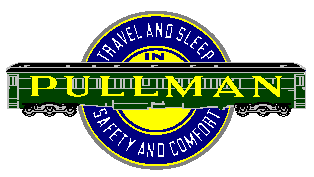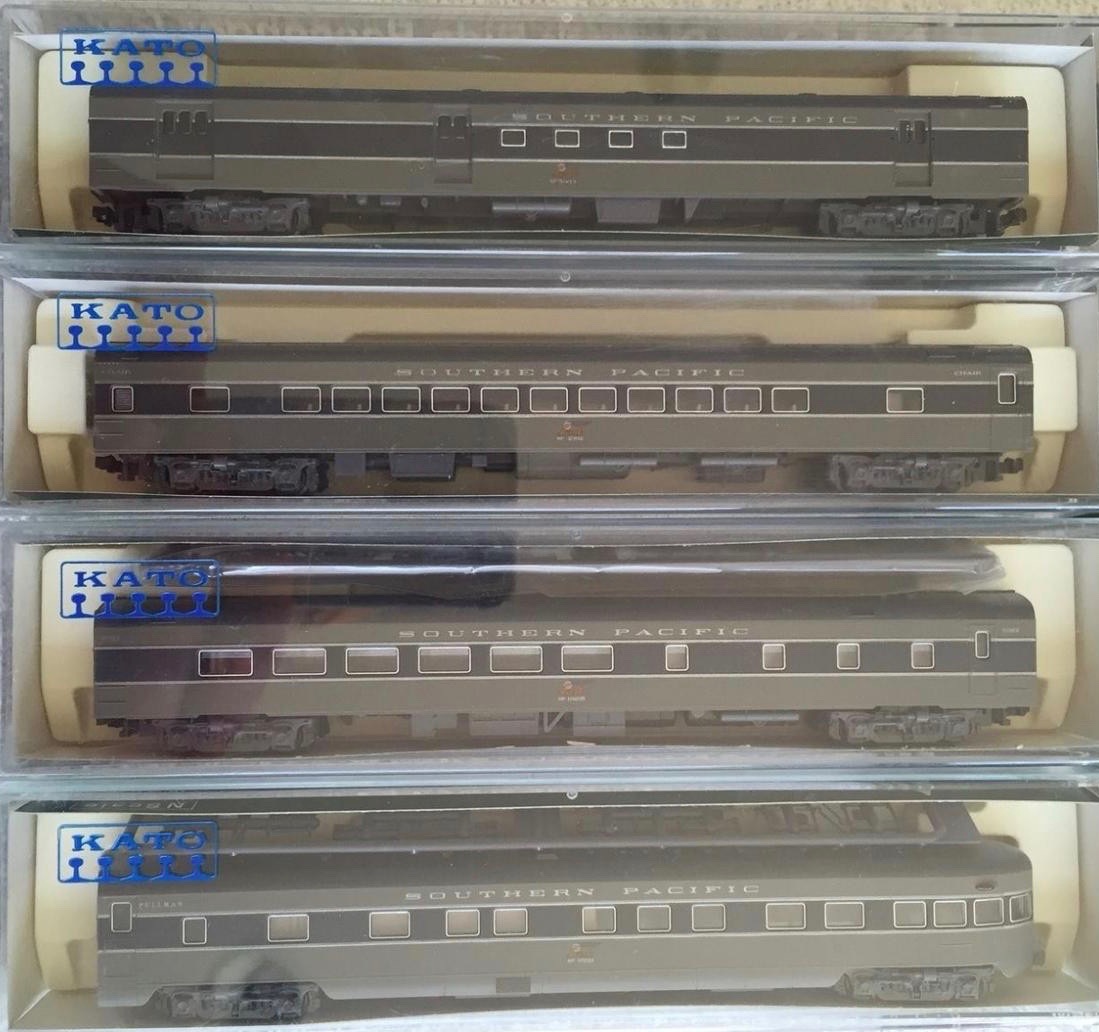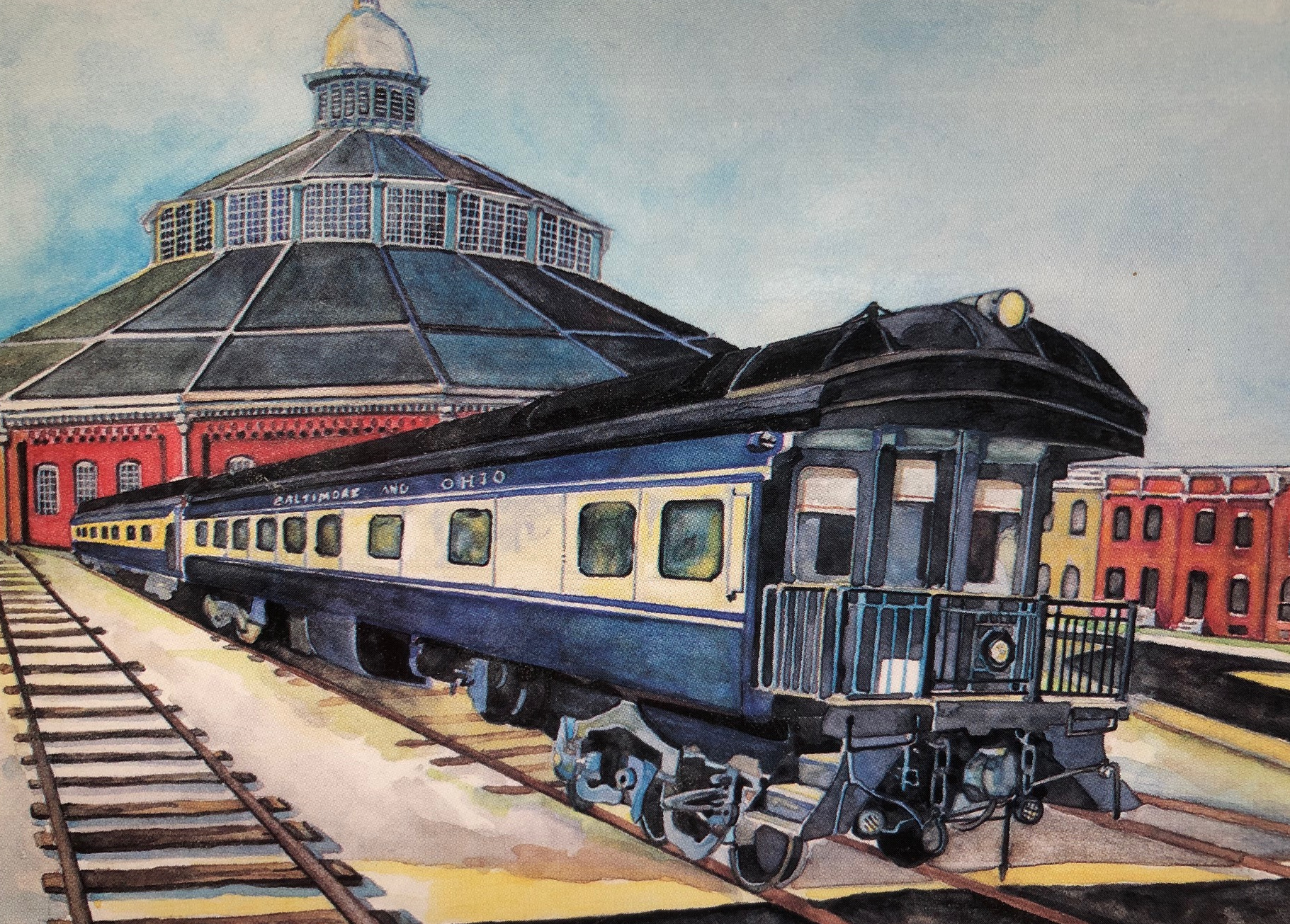Prototype History: Pullman was the leading producer of heavyweight coaches during the 1st half of the twentieth century. They were known for the quality and luxury of the passenger cars. The observation car was a common sight on heavyweight consists during 1920s and 1930s.
An observation car/carriage/coach (in US English, often abbreviated to simply observation or obs) is a type of railroad passenger car, generally operated in a passenger train as the last carriage, with windows on the rear of the car for passengers' viewing pleasure. The cars were nearly universally removed from service on American railroads beginning in the 1950s as a cost-cutting measure in order to eliminate the need to "turn" the trains when operating out of stub-end terminals.
An observation car/carriage/coach (in US English, often abbreviated to simply observation or obs) is a type of railroad passenger car, generally operated in a passenger train as the last carriage, with windows on the rear of the car for passengers' viewing pleasure. The cars were nearly universally removed from service on American railroads beginning in the 1950s as a cost-cutting measure in order to eliminate the need to "turn" the trains when operating out of stub-end terminals.
Road Name History: The Pullman Car Company, founded by George Pullman, manufactured railroad cars in the mid-to-late 19th century through the early decades of the 20th century, during the boom of railroads in the United States. Its workers initially lived in a planned worker community (or "company town") named Pullman, Chicago. Pullman developed the sleeping car, which carried his name into the 1980s. Pullman did not just manufacture the cars: he also operated them on most of the railroads in the United States, paying railroad companies to couple the cars to trains. The labor union associated with the company, the Brotherhood of Sleeping Car Porters, which was founded and organized by A. Philip Randolph, was one of the most powerful African-American political entities of the 20th century. The company also built thousands of streetcars and trolley buses for use in cities.
Brand/Importer Information: Micro-Trains is the brand name used by both Kadee Quality Products and Micro-Trains Line. For a history of the relationship between the brand and the two companies, please consult our Micro-Trains Collector's Guide.
Manufacturer Information:  Micro-Trains Line split off from Kadee Quality Products in 1990. Kadee Quality Products originally got involved in N-Scale by producing a scaled-down version of their successful HO Magne-Matic knuckle coupler system. This coupler was superior to the ubiquitous 'Rapido' style coupler due to two primary factors: superior realistic appearance and the ability to automatically uncouple when stopped over a magnet embedded in a section of track. The success of these couplers in N-Scale quickly translated to the production of trucks, wheels and in 1972 a release of ready-to-run box cars.
Micro-Trains Line split off from Kadee Quality Products in 1990. Kadee Quality Products originally got involved in N-Scale by producing a scaled-down version of their successful HO Magne-Matic knuckle coupler system. This coupler was superior to the ubiquitous 'Rapido' style coupler due to two primary factors: superior realistic appearance and the ability to automatically uncouple when stopped over a magnet embedded in a section of track. The success of these couplers in N-Scale quickly translated to the production of trucks, wheels and in 1972 a release of ready-to-run box cars.
Micro-Trains Line Co. split off from Kadee in 1990 to form a completely independent company. For this reason, products from this company can appear with labels from both enterprises. Due to the nature of production idiosyncrasies and various random factors, the rolling stock from Micro-Trains can have all sorts of interesting variations in both their packaging as well as the products themselves. When acquiring an MTL product it is very important to understand these important production variations that can greatly enhance (or decrease) the value of your purchase.
Please consult our Micro-Trains Collector's Guide

Micro-Trains Line Co. split off from Kadee in 1990 to form a completely independent company. For this reason, products from this company can appear with labels from both enterprises. Due to the nature of production idiosyncrasies and various random factors, the rolling stock from Micro-Trains can have all sorts of interesting variations in both their packaging as well as the products themselves. When acquiring an MTL product it is very important to understand these important production variations that can greatly enhance (or decrease) the value of your purchase.
Please consult our Micro-Trains Collector's Guide
Item created by: gdm on 2015-09-01 15:08:27. Last edited by gdm on 2020-06-09 07:31:07
If you see errors or missing data in this entry, please feel free to log in and edit it. Anyone with a Gmail account can log in instantly.
If you see errors or missing data in this entry, please feel free to log in and edit it. Anyone with a Gmail account can log in instantly.









